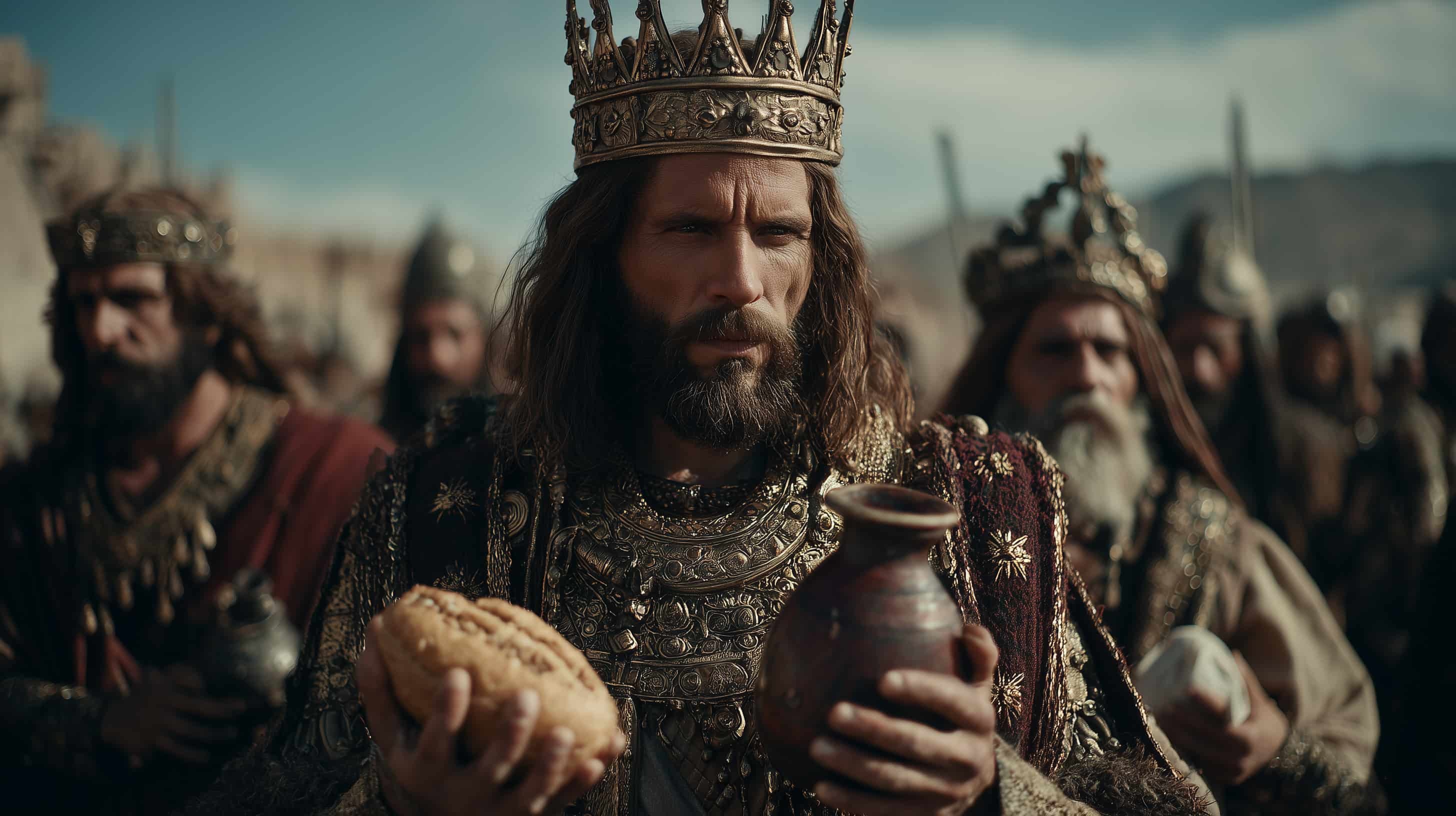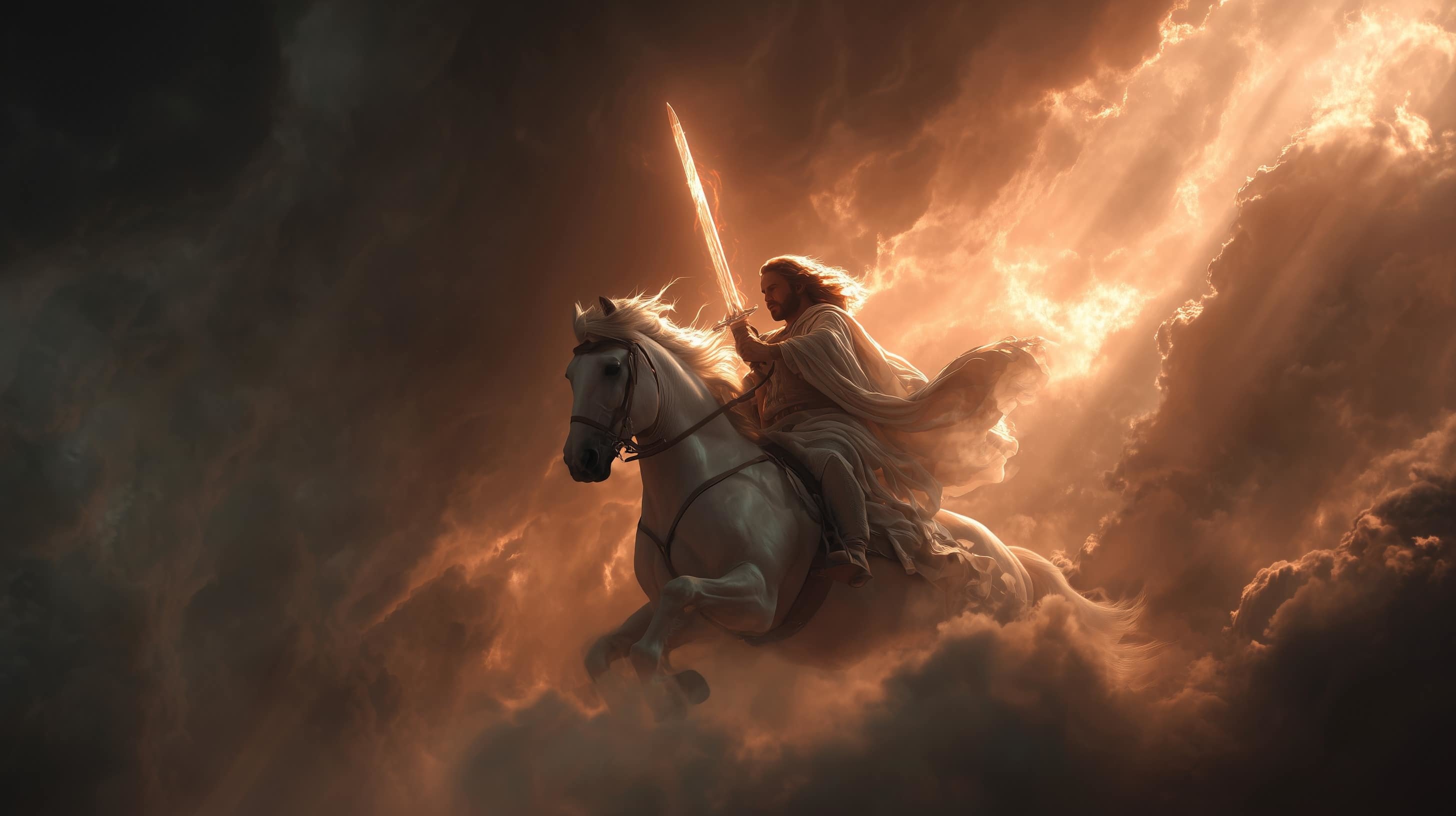
The dust of battle still lingers in the air.
Abram, weary yet victorious, leads his men back from defeating the kings who had taken his nephew Lot captive.
The spoils of war are gathered, the adrenaline fading. And then, out of nowhere, he appears.
A regal figure steps into the valley. He is a king… but also a priest.
His crown gleams, yet his hands carry no sword. Instead, he brings something unexpected: bread and wine.
He blesses Abram in the name of “God Most High, Creator of heaven and earth.” (Genesis 14:19).
This is Melchizedek, King of Salem. And in just a few verses, he vanishes from the scene. He’s an enigma left hanging in the story of Scripture.
Who is this man? And why does he matter?

Melchizedek is unique because he holds two roles rarely joined in the ancient world: priest and king.
Kings wielded power.
Priests interceded with the divine.
But Melchizedek was both a ruler and a mediator.
His city was called Salem—a word rooted in ‘shalom,’ meaning peace.
Fitting, then, that the prophets would later declare of the Messiah, “He will be called Prince of Peace” (Isaiah 9:6).
It’s as if God dropped a breadcrumb in Abram’s day, pointing forward to Someone greater… One who would one day reign not by war, but by peace.


But don’t miss the staggering humility. Kings of the ancient world demanded service, but Melchizedek provided it. He gave bread, he gave blessing.
This is the same pattern we see in Jesus:
He took the form of a servant (Philippians 2:5–7).
He washed the feet of His disciples (John 13:4–5).
He declared, “The greatest among you will be your servant” (Matthew 23:11).
He gave His very life on the cross.
The supreme Ruler of creation does not come to dominate, but to serve. And in Melchizedek, long before Bethlehem, we already see this truth unfolding.
Melchizedek may have appeared as a mystery to Abram, but to us, the mystery has been unveiled. He points to Christ.
Jesus is the true Priest-King.
Jesus is the Prince of Peace.
Jesus is the Servant who gives His body and blood for the life of the world.
The lesson is clear: the ultimate King doesn’t come demanding to be served. He comes with bread and wine in His hands, offering Himself.
The question is… will we receive Him?
